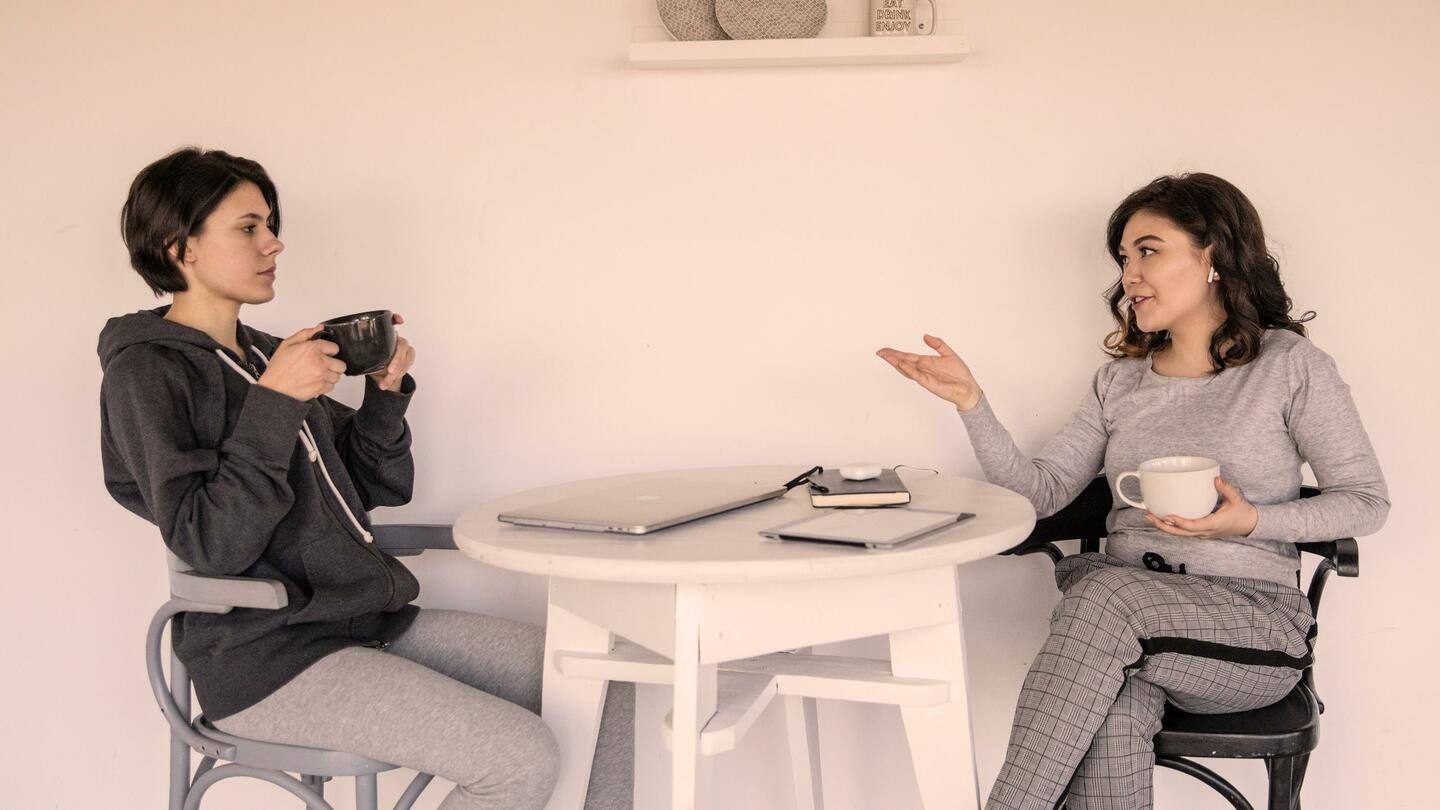
Be good at listening with these 5 tips
What's the story
"Nature gave us one tongue and two ears so we could hear twice as much as we speak" - Epictetus.
Active listening is a social skill, but not many are as good as they would like to think.
Whether you're dealing with colleagues or talking to your significant other, active listening is essential.
Listed below are five ways you can improve your listening skills.
Distractions
Minimize distractions as much as possible
Put your phone away.
Using your smartphone or fidgeting with it while listening is not only off-putting but also reeks of disrespect for your interlocutor.
Apart from this, active listening requires your presence of mind. It becomes difficult if you are preoccupied with another topic while feeling the impulse to be a good listener at that moment.
Take time to re-center and then listen.
Engage
Repeat their last few words back to them
While listening, it often happens that one gets lost in the middle of the conversation, and that appears rude on behalf of the listener.
If you remember nothing else, at least repeat the last few words of the speaker back to them. It makes the other person feel heard.
Avoid summarizing what your interlocutor just said in your own words, it sounds unattractive.
Nonverbal communication
Offer nonverbal cues that you are listening
Making eye contact frequently but not too often, nodding on affirmation, and having attentive body language, among other nonverbal cues, are important parts of listening.
Active listening requires paying attention to both the explicit and implicit information that you are receiving in a conversation.
Words on their own are inert, and these nonverbal cues are the gateway to the emotions and motivations behind them.
Acknowledge
Admit shortcomings
If you are engaging in conversations where you think you are a misfit, either due to being unfamiliar with the topic or for some other reason, let the other person know instantly.
If you zoned out in the middle of the conversation, acknowledge that you got lost and didn't quite get it, and ask the person to repeat themselves instead of pretending to understand.
Ask
Ask more questions
Asking more questions not only makes the other person feel listened to but also ensures that you fully understand their message.
This also ensures that you don't overlook important details.
Pay attention to the type of questions you are asking. Ask questions that will receive open-ended responses.
Open-ended questions will help your interlocutor to open up and start explaining what is going on.